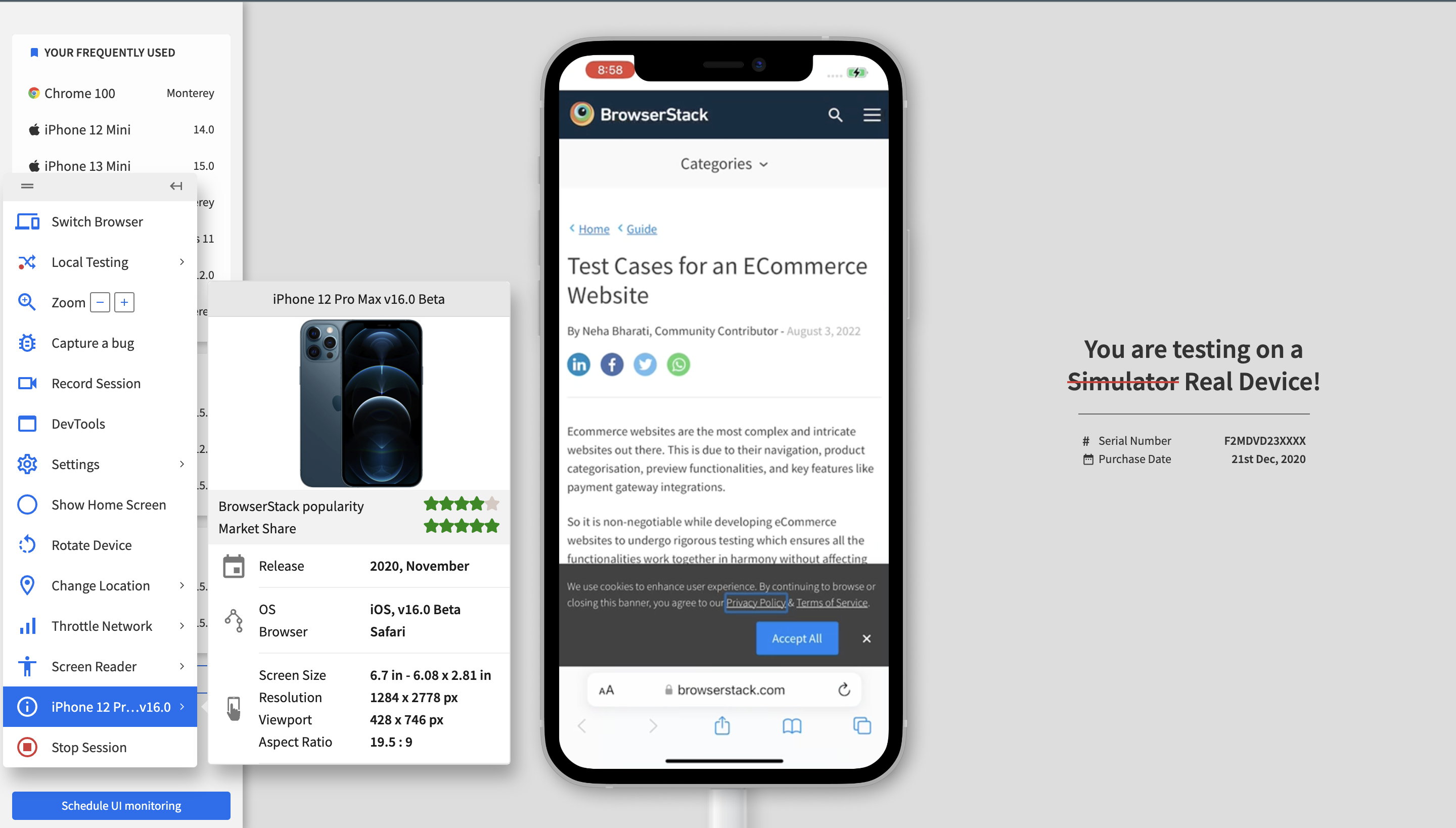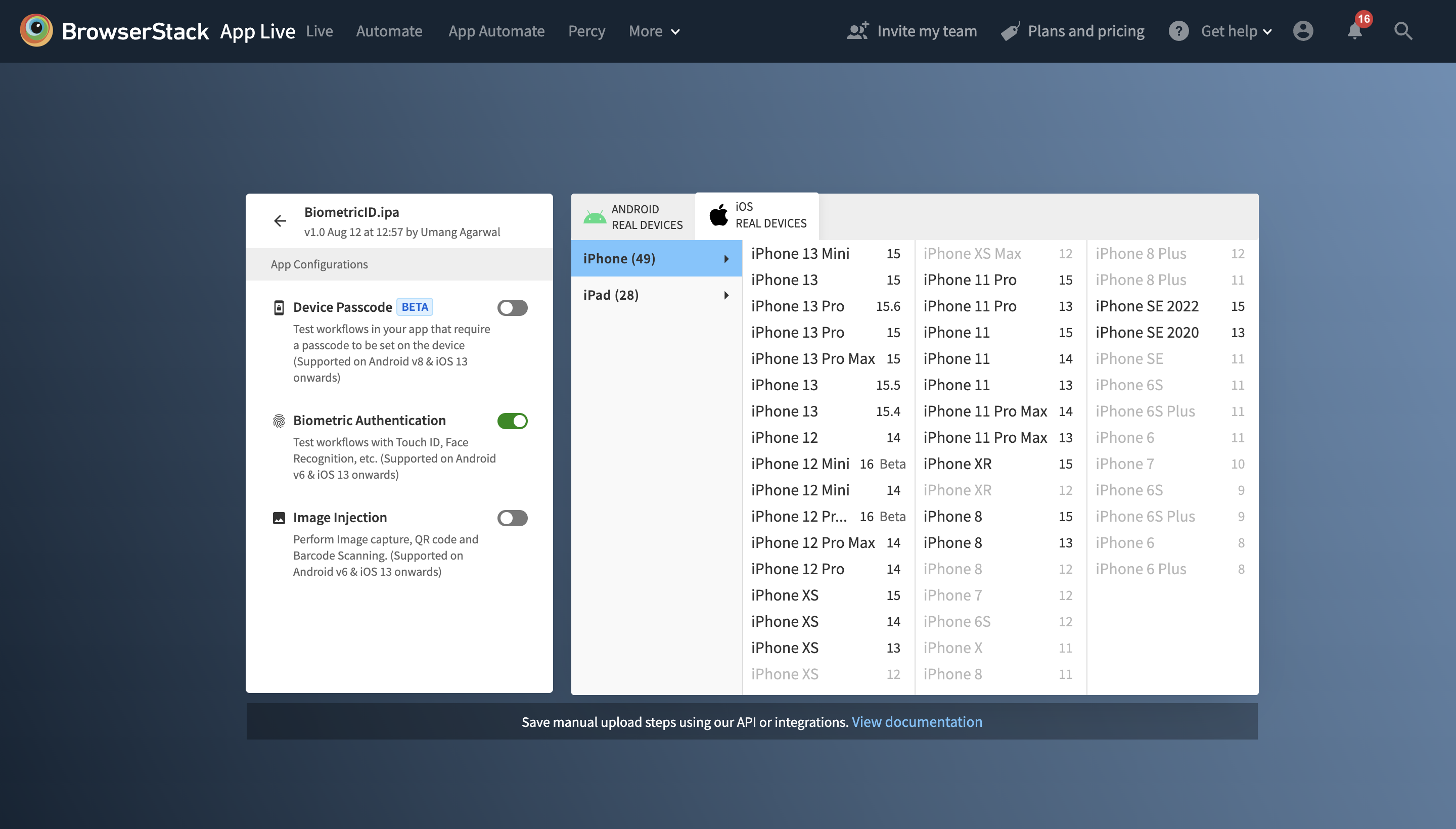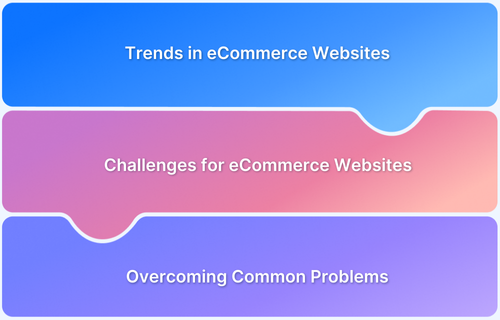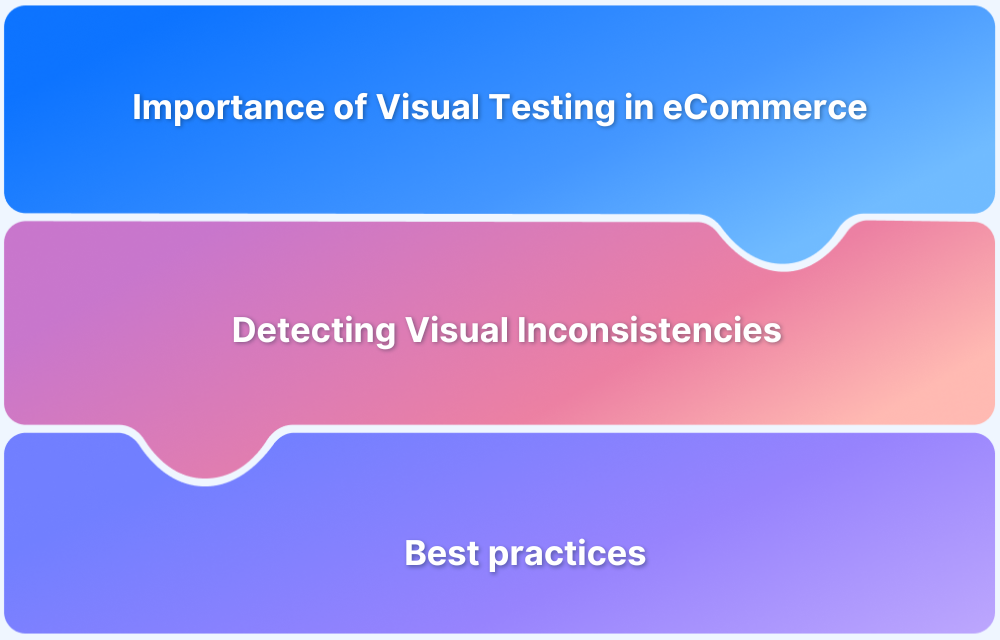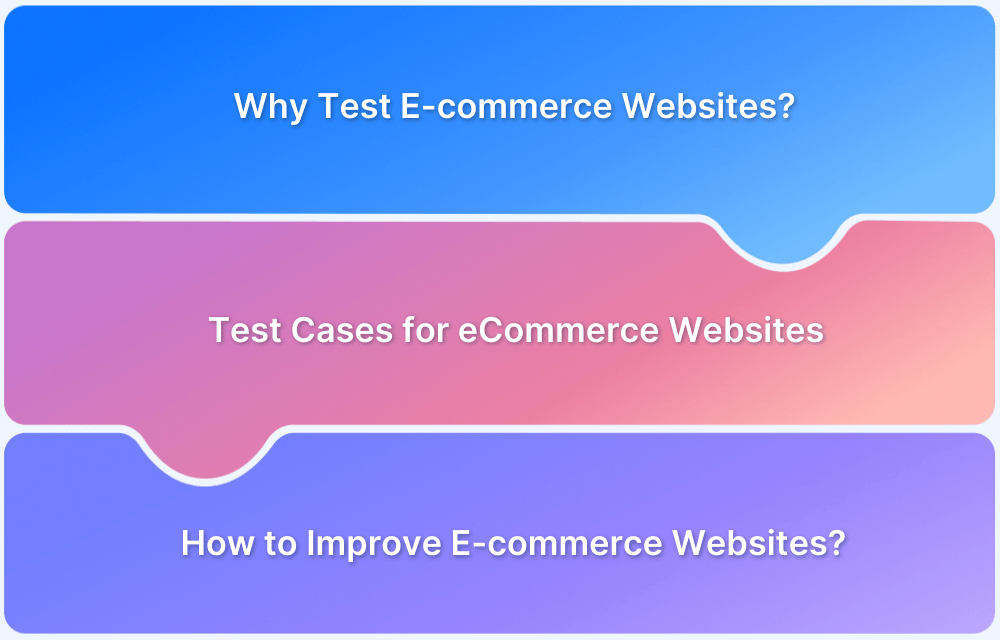An E-commerce website must function flawlessly across browsers, devices, and user scenarios to meet modern customer expectations. From product discovery to payment processing, each interaction must work seamlessly to avoid cart abandonment, revenue loss, or negative user reviews.
Overview
An eCommerce test strategy is a structured plan that ensures every aspect of an online shopping platform is tested thoroughly for functionality, performance, security, and user experience.
Key Elements of an Effective E-commerce Testing Strategy
- Define testing goals based on business needs and user behavior
- Focus on high-risk and high-impact areas during test case planning
- Use automation to speed up repetitive test scenarios and improve accuracy
- Implement continuous testing during development and post-release
- Test on real devices and browsers to ensure real-world performance
- Analyze user data and feedback to refine the testing process over time
This article explores the importance of e-commerce testing, challenges, and different types.
What is ECommerce Testing?
E-commerce testing is the process of thoroughly checking an online shopping platform to ensure its features, performance, security, and overall user experience meet business requirements and customer expectations.
It covers every aspect of the site or application, including product search, filtering, cart functionality, checkout flow, payment processing, and order tracking.
Significance of E-commerce Testing
E-commerce testing is vital in delivering a secure, fast, and seamless shopping experience. As online buyers expect flawless performance and intuitive navigation, even minor bugs or performance issues can lead to abandoned carts, lost revenue, and negative reviews.
The core objective of e-commerce testing is to ensure:
- All the pages of the e-commerce website are tested systematically, and transactions are entirely validated and secure.
- There is no compromise on any crucial factors such as customer data security, mobile responsiveness, loading time, user experience, etc.
- Testing, validating and verifying that the site or application is secured enough from intruders and cyber hackers.
- That the particular e-commerce application is glitches-free, secure, and user-friendly
- Whether the application complies with the international standards, regulations, and procedures to reduce cyber security threats.
Overall, the e-commerce application testing process helps businesses identify loopholes and get them fixed in a short cycle for faster product releases.
To carry out such testing effectively across real devices and environments, teams can rely on platforms like BrowserStack. It enables seamless cross-browser, cross-device, and r testing, helping e-commerce businesses ensure a flawless user experience before every release.
Follow-Up Read: 11-Step Product Launch Checklist
Things to Know Before Testing Your E-Commerce Platform
Before starting the testing process for an e-commerce platform, it’s essential to understand what needs to be tested and prepare accordingly. This ensures your testing efforts align with business goals and user expectations.
Here are key things to consider before beginning:
- Understand business workflows: Map out the critical user flows, such as browsing products, adding to cart, checking out, and managing orders to ensure complete test coverage.
- Define testing objectives: Clearly identify what you want to achieve, whether it’s validating functionality, improving performance, ensuring security, or checking cross-device compatibility.
- Identify high-priority test scenarios: Focus on areas that directly impact revenue and user experience, such as login, checkout, payments, and mobile responsiveness.
- Know your integrations: List all third-party services involved (such as payment gateways, shipping APIs, or analytics tools) so they can be included in test plans.
- Prepare real user data scenarios: Create test data that mimics real customer behavior, including various payment methods, promo codes, and shipping options.
- Plan for cross-browser and cross-device testing: E-commerce users shop on multiple devices and browsers, so testing on a wide range of environments is essential.
- Consider automation for repetitive flows: Automating stable and repetitive test cases can save time and improve reliability during regression testing.
Read More: Top 20 Essential Website Testing Tools
Types Of E-Commerce Websites/Applications
E-commerce platforms come in various forms depending on the target audience, product types, and business models. Understanding these types is essential for tailoring testing strategies that match specific workflows and user behaviors.
Here are the main types of e-commerce websites and applications:
- Business to Consumer (B2C): The most common model where businesses sell directly to individual customers. Examples include online retail stores like Amazon or Flipkart.
- Business-to-business (B2B): In this model, companies sell products or services to other businesses. These platforms often involve bulk orders, negotiated pricing, and account-based purchasing.
- Consumer to Consumer (C2C): Platforms that allow individuals to sell to other individuals, typically through online marketplaces like eBay or OLX.
- Consumer to Business (C2B): Less common, this model allows individuals to offer products or services to businesses. Freelancing platforms like Upwork are examples.
- Marketplace: Aggregates multiple sellers and offers a wide range of products to consumers. These platforms require testing for seller onboarding, multi-vendor management, and order routing.
- Subscription-Based: These platforms provide recurring deliveries of products or services. Testing often involves subscription management, auto-renewals, and payment cycles.
- Mobile Commerce (M-Commerce): Mobile-first applications designed specifically for smartphones and tablets. These require extensive mobile testing for responsiveness, touch interactions, and device compatibility.
How to Perform E-Commerce Testing?
Performing e-commerce testing involves validating every key component of the platform to ensure a secure, seamless, and high-performing user experience. The testing process should be methodical, covering both frontend and backend functionality across various devices, browsers, and user scenarios.
Here is a step-by-step approach to performing effective e-commerce testing:
- Understand the business workflows: Begin by mapping out core user journeys such as product search, adding to cart, checkout, payment, and order tracking. This helps in defining test coverage.
- Write detailed test cases: Create test cases for common and edge scenarios across all modules, login, navigation, filters, cart, wishlist, checkout, payments, and refunds.
- Perform functional testing: Validate that all features work as intended, including product display, cart operations, coupon application, and order processing.
- Test integrations: Check how the platform interacts with third-party services such as payment gateways, shipping APIs, CRMs, and analytics tools.
- Conduct usability testing: Evaluate the site or app from a user perspective to ensure the interface is intuitive and easy to navigate.
- Execute performance testing: Measure site speed, response time, and behavior under load, especially during flash sales or high traffic events.
- Run security testing: Identify vulnerabilities like insecure data transmission, improper access control, and payment-related flaws.
Do cross-browser and cross-device testing: Test the platform across various browsers and devices to ensure a consistent user experience. - Automate where possible: Use automation tools to speed up regression and repetitive test cycles without compromising quality.
Core Challenges of E-commerce App Testing
Testing e-commerce applications involves complex workflows, real-time data, and multiple integrations, making it essential to be aware of common challenges.
- Simulating client data is crucial during testing, as QA specialists need to cover all functionality and work through all the test cases.
- It is a bit challenging to choose automated integration scenarios, technologies, and principles, as the “automate everything” approach will eventually lead you to collapse.
- Compliance with accessibility standards is worth considering, as it ensures that clients from other locations and countries can smoothly interact with your e-commerce app or website.
- Compliance with security guidelines must be followed to secure customer data & integrity. These guidelines must include authenticity, integrity, confidentiality, availability, and encryption policies.
- Applications of the e-commerce sector vary from consumer-to-consumer, business-to-consumer, consumer-to-consumer, business-to-business, or consumer-to-business. All of them represent a dynamic and distinct concept.
Therefore, the e-commerce application testing process can be dissimilar. Any technological shift can bring new challenges for developers and testers. Simply put, testing an e-Commerce app is challenging because e-commerce application test scenarios are complex. With rapid technological changes, it can sometimes be difficult to monitor accurate techniques or tools for testing e-commerce applications.
However, with BrowserStack cloud infrastructure combined with appropriate techniques or approaches, devs and testers can deliver desired app performance and user satisfaction.
E-commerce Mobile App Testing Checklist
In the competitive landscape of e-commerce mobile app development and testing, having well-defined test cases and a comprehensive checklist is essential. Below is a quick mobile app testing checklist to consider during the testing process.
- Check if the app installs and launches properly on different devices
- Test user registration and login with email, phone, and social media
- Verify product search, filters, and category navigation
- Ensure product details, images, and prices display correctly
- Add and remove items from the cart and wishlist
- Test the entire checkout process for a smooth flow
- Check all payment options like cards, wallets, UPI, and cash on delivery
- Confirm order summary, confirmation messages, and tracking updates
- Test push notifications for order updates and offers
- Check app performance under different network speeds and heavy load
- Ensure data security during login and payment
- Test the app on different devices and operating systems
- Check app behavior when offline or with a poor internet connection
Read More: 60 Test Cases for Ecommerce Website
Types of E-commerce Testing Techniques
Since e-commerce applications operate on an international scale, they need to fulfill certain requirements before they can be launched. For this reason, web apps have to go through diverse forms of testing to ensure that every facet of the system works flawlessly.
Here is a list of e-commerce testing techniques and approaches:
1. Functional Testing to Avoid Post-Launch Issues
Functional testing helps verify that all features work correctly and as expected to prevent issues-post launch. Regardless of how well you develop your e-commerce app, errors in your wireframe will always remain that may disrupt your app functionality. Thus, the quality of any application is crucial for customer satisfaction and retention. Functional testing sets the foundation for a well-functioning app, validating that all features work according to requirements.
Important traits that need to be tested include
- Login/ Sign-in system
- Search and filters page
- Order details page
- Coupon codes and Deals
- Order tracking
- Shopping cart page
- Checkout page
2. Usability Testing for Smooth Buying Experience
It assesses the ease of use and user experience to ensure a smooth and intuitive shopping journey. An e-commerce app’s or website’s usability is critical in facilitating users during the purchase. Comprehensive usability testing creates a superior app experience. A shocking 88% of people will not return to a website they had a bad experience with. So, refusing to invest in a mobile-first design implementation can cost far more than one could expect.
However, Testing every possible device on the market is impossible. Testing on the right devices would be the next best thing.
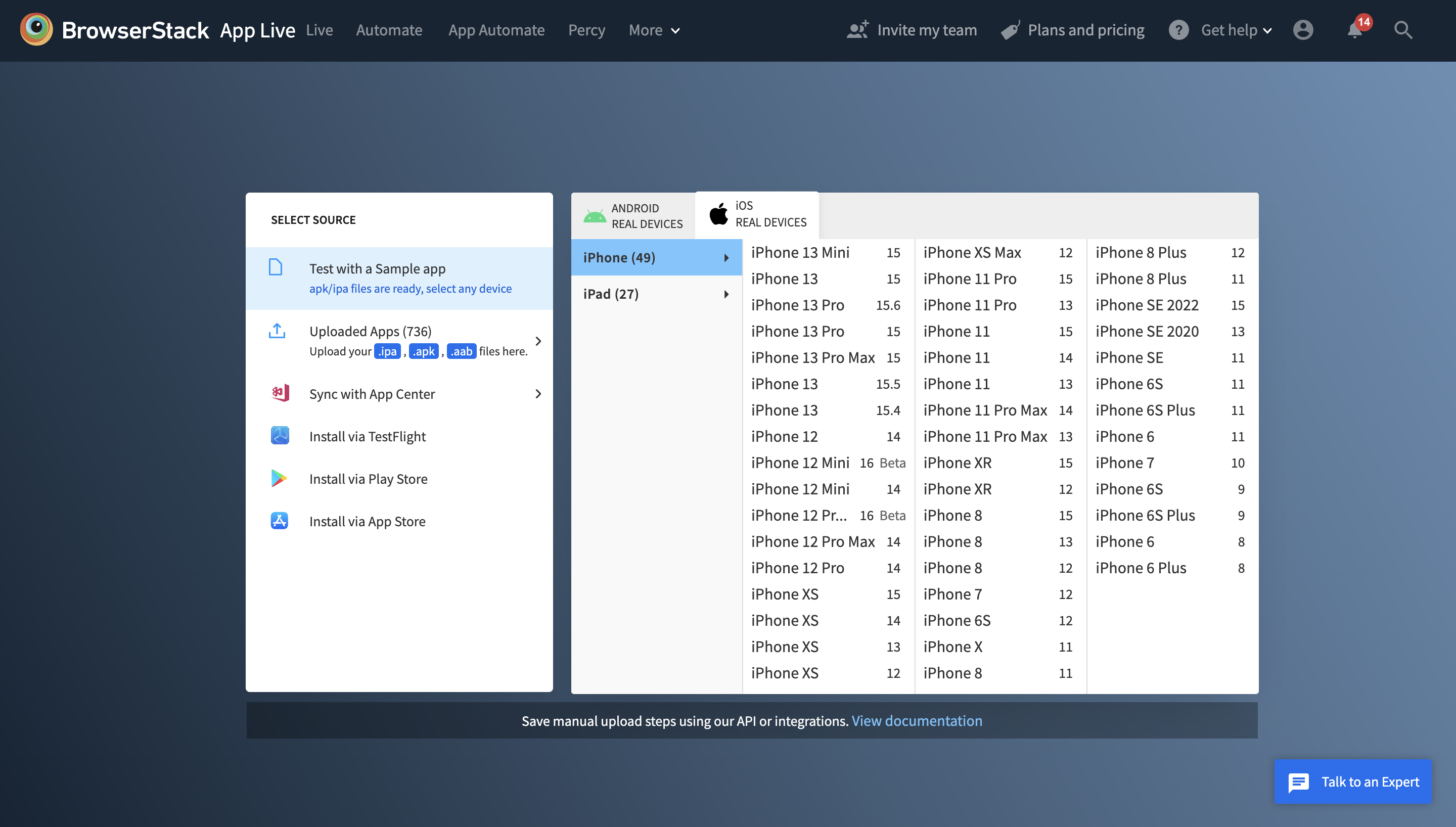
Start Testing on Real Device Cloud
3. Security Testing for Seamless Transactions
It ensures that sensitive customer information is securely stored and processed. The risk of theft, fraud, and security breaches is a real threat to e-commerce apps. No one likes to get stuck on the payments page. So, it is crucial to ensure a safe, smooth, and secure payment process by testing thoroughly.
Security Testing addresses the following parameters:
- Ensure all supported and secured payment options.
- Verify that all the data exchanges and transmissions between the user’s device and the app server occur through HTTPS protocol.
- Encryption of the user’s data like credit/debit card details, bank account credentials, and other confidential data should occur over a secured channel.
- Validate whether there is any information loss during the transmission and ensure that the recovery systems work perfectly in case of any loss.
- Check whether the encryption of the sensitive information is successful and no storage of passwords in the cookies.
With BrowserStack App Live, you can be assured of uncompromising e-commerce app testing security. Pristine devices and browsers are available for everyone, every time. Simply need to sign up, choose the browser-device-OS combination, and start testing to ensure operability.
4. Performance Testing For Optimum Functionality
E-commerce performance testing evaluates the website’s speed, scalability, and stability under various loads to ensure optimal performance. Slow performance can kill performance even on a web app that gets a great score. That is why performance testing is crucial in SDLC. It guarantees that the e-commerce apps function smoothly across all browsers.
Types of performance testing include:
- Stress testing
- Load testing
- Volume testing
- Spike testing
- Scalability testing
With Browserstack Performance Testing, this is painless to accomplish. You can test your app’s performance in the face of real-world situations like
- Monitoring the app’s CPU consumption for spikes or prolonged excessive usage
- Compare system memory, available system memory, and your app’s memory usage
- Detecting memory leaks in advance and preventing app crashes
- Check device temperature and battery charge percentage to ensure apps consume only the optimal amount of battery
- Achieve maximum efficiency by identifying and eliminating bandwidth bottlenecks
- Profile app performance and behavior over poor network connectivity and fluctuating or throttled network
Just sign up, upload your app, and start testing biometric authentication and device passcode functionalities for added security of e-commerce apps.
Note:- BrowserStack also supports Biometric and Camera Support for Xamarin Apps on Android
5. Cross-Browser Testing for Consistent User Experiences
In e-commerce, customers may access your website from different browsers, operating systems, and devices. A feature that works flawlessly on one browser might break on another, leading to a poor user experience and lost sales.
That’s why cross-browser testing is essential to ensure that every element of your e-commerce platform functions and displays correctly, regardless of how or where it’s accessed.
Key aspects to verify during cross-browser testing:
- Layout and visual consistency across browsers
- Functionality of buttons, forms, and interactive elements
- Compatibility of fonts, animations, and media files
- Responsive behavior across different screen sizes and resolutions
- Check out flow and payment gateway stability in all environments
Manual testing across so many combinations is time-consuming and error-prone. That’s where BrowserStack proves invaluable. It provides instant access to thousands of real browsers and devices, allowing QA teams to test in real user conditions without maintaining physical infrastructure.
From Chrome and Safari to mobile web and legacy browsers, BrowserStack makes it easy to spot inconsistencies and deliver a flawless shopping experience to every user.
Quality Issues You Can Avoid with E-Commerce Testing
Thorough e-commerce testing helps identify and eliminate issues before they reach your customers. By validating every part of the platform, from product discovery to payment, you can prevent problems that directly impact sales, trust, and user satisfaction.
Here are common quality issues that can be avoided through e-commerce testing:
- Broken or unresponsive UI elements: Ensure buttons, links, and menus work correctly across all pages and devices.
- Incorrect product information: Detect mismatches in product details, pricing, or availability that can confuse or frustrate shoppers.
- Search and filter failures: Avoid issues where customers can’t find what they’re looking for due to broken search or filter logic.
- Cart and checkout errors: Identify bugs that block users from adding items to the cart, applying coupons, or completing purchases.
- Payment gateway failures: Catch and fix issues with failed or duplicate transactions, incorrect amount processing, or limited payment options.
- Performance lags and slow load times: Spot delays in page rendering or app responsiveness, especially during peak traffic.
- Security vulnerabilities: Prevent data breaches and fraud by testing for common security flaws in login, transactions, and account management.
- Mobile responsiveness issues: Ensure consistent behavior and layout across smartphones and tablets, preventing mobile users from dropping off.
- Broken integrations with third-party services: Detect errors in shipping APIs, CRMs, or analytics tools that could affect order processing or reporting.
By proactively testing for these issues, businesses can deliver a polished, high-performing e-commerce experience that builds customer trust and boosts conversions.
Read More: Getting Started with Website Test Automation
Best Practices for E-Commerce Testing
To ensure a seamless and reliable shopping experience, it’s important to follow proven testing practices. These best practices help build a solid test strategy and catch issues before they impact real users.
- Cover critical user flows: Test key paths like product search, add to cart, checkout, and payment.
- Test across browsers and devices: Make sure your site works well on all popular browsers, screen sizes, and platforms.
- Automate wherever possible: Use automation for repetitive tests like login, form submissions, and checkout.
- Use real-world data: Test with realistic customer profiles, addresses, and payment scenarios.
- Run performance checks: Ensure the site loads fast and performs well, even during high traffic.
- Include security testing: Protect user data and prevent vulnerabilities in login and payment flows.
- Test third-party integrations: Validate connections with payment gateways, shipping partners, and analytics tools.
- Update test cases regularly: Keep your test suite in sync with product updates and new features.
- Collaborate with all teams: Work closely with developers, product teams, and support to cover all test angles.
Why Choose BrowserStack for E-Commerce Website Testing?
Testing an e-commerce website demands accuracy, speed, and wide coverage across devices and browsers. BrowserStack simplifies this process by providing a robust cloud-based testing infrastructure that helps teams deliver flawless shopping experiences faster.
Here’s why BrowserStack is an excellent choice for e-commerce testing:
- Access to Real Devices and Browsers: Test your website on 3500+ real device and browser combinations to ensure consistent performance for every user.
- No Setup or Maintenance Required: Eliminate the need for in-house device labs. BrowserStack lets you start testing instantly on real environments.
- Seamless Automation Support: Run automated tests using frameworks like Selenium, Cypress, and Playwright across multiple browsers and OS combinations.
- Responsive and Visual Testing: Verify mobile responsiveness, UI consistency, and design accuracy with tools like Percy for visual testing.
- Geolocation and Network Simulation: Test shopping flows and performance across different regions and network conditions, ideal for global e-commerce businesses.
- Integrated with CI/CD Pipelines: Easily plug BrowserStack into your development workflow to enable continuous testing and faster feedback loops.
- Secure and Scalable: Enterprise-grade security and scalable infrastructure ensure reliable testing even during peak release cycles.
Conclusion
E-commerce platforms must deliver flawless user experiences to stay competitive and drive conversions. From functional and cross-browser testing to performance and security checks, a well-planned testing approach ensures your website works smoothly across all user scenarios.
By following best practices and having a clear test strategy for your eCommerce website, teams can identify issues early, reduce cart abandonment, and build user trust.
Platforms like BrowserStack help streamline the testing process by offering instant access to real devices, browsers, and robust automation capabilities. Whether you’re launching a new feature or preparing for peak traffic, BrowserStack enables fast, reliable, and scalable testing, so your users always get the seamless experience they expect.



